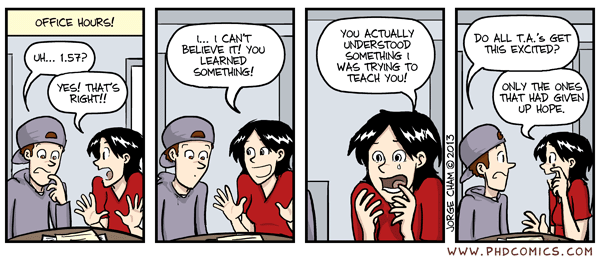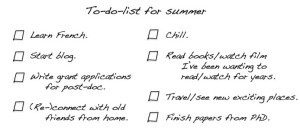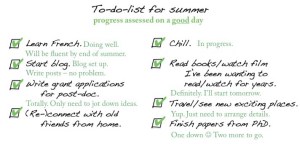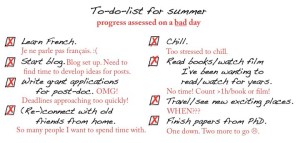As long as I can remember, I’ve heard teachers, professors and politicians say that we should encourage more high-school and university students to pursue a career in science. And I used to be a believer. After all, the people who said this, were the ones at the top, the ones with a proper oversight of things. However, today, I’m not so sure anymore. In fact, I’m becoming more and more convinced that encouraging people to pursue a career in science (or at least research) may just be a way for universities to generate competition and thus obtain a source of cheap labor.
 Sounds like a conspiracy theory? Maybe. But here’s why:
Sounds like a conspiracy theory? Maybe. But here’s why:
As I grow older, more and more of my friends, who used to work in research (and who really liked doing so) drop out. They move towards alternative careers, such as science communication, industry, teaching etc. And they generally list the same reasons for doing so:
1. Early-career researchers get little reward for their work: this primarily means that they consider themselves being underpaid and overworked. Money matters.
2. There’s too much insecurity, pressure and competition as you move up the ranks: there are many, many good scientists with great publication records, who’d all like to have a junior group leader or tenure track position. Obviously, the more people you feed into the system at the lower ranks, the more will compete for the jobs at the top. But there are increasingly less long-term contracts handed out . Security matters. Moreover…
3. … science is becoming less of a vocation and more like a job: It seems to be less crucial nowadays how good or creative you are, and increasingly important how well you can manage and advertise yourself. Your ideas and hands-on experience seem to matter less than what your CV looks like, in what labs you’ve worked and how well you’ve published. And since the results of your first five to ten years of research may therefore define your later career options, this discourages “outiside-the-box-thinking” and taking on risky projects. Often this also means, that science-related non-research activities are undervalued: I’ve filled in fellowship applications where there is no option to include teaching or the organization of science events as an asset.This is extremely frustrating, if you consider that much of science knowledge is actually passed through the grapevine: by great teachers and lecturers who transmit their love of science as well as up-to-date knowledge, and by experienced lab staff who show you the do’s and do not’s of experimental design and lab techniques.
So, all in all, my interpretation of the data: thanks to increasing numbers of PhD students and postdocs, there’s plenty of “raw material” to chose from. Therefore PIs and legislators can get away with providing low job security, as well as relatively low salaries. Also, having more early-career researchers also requires less personal touch and more standardized metrics. And keeping it this way means a cheap workforce, which is why people at the top encourage more students to pursue a career in research. And thus the vicious circle continues…
Still think it’s a conspiracy theory? Maybe. Maybe also have a look at Paula Stephan’s book, How Economics Shapes Science. It provides a much broader and nuanced overview of the interplay between economics and science, including a detailed analysis of supply and demand in research.
But please keep this rant in mind, next time someone tells you we need to recruit more students into science!






